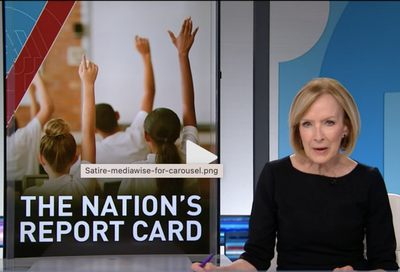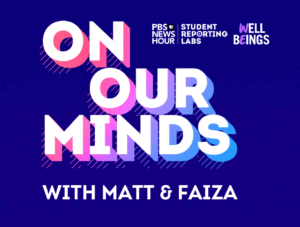Summary
A national panel of health experts is recommending for the first time that children ages 8 and up be screened for anxiety — an issue that the pandemic has put a spotlight on. Dr. Lee Beers, former president of the American Academy of Pediatrics, and Professor Elana Bernstein of the University of Dayton’s School of Psychology, join Geoff Bennett to discuss child mental health care. For a transcript of this story,
click here
.
Five Facts
-
Who
is interviewed in this story, and what are their backgrounds?
-
How
many kids were diagnosed with anxiety in 2020, according to the CDC?
-
When
should children first be screened for anxiety, and why at that age, according to the experts in this story?
-
What
are some of the ways anxiety is impacting children, according to this story?
-
Why
has anxiety in children become a greater focal point recently, according to this story?
Focus Questions
After watching this story, what do you think is the biggest barrier to finding help for children who are experiencing anxiety?
Media literacy
: Can you identify the news item at the heart of this story? What occurred that made this story timely, relevant and important to cover now?
For More
What students can do:
1.
Know the competing perspectives and issues
: Those who may not support the idea that young people are facing serious mental health issues might say the problem is being exaggerated or that it's made worse by talking about it too much. While you may disagree with these arguments, your knowledge and understanding of them are critical in helping to form your own argument on the current needs of young people as they relate to mental health.
Let's take one of those competing perspectives: kids are NOT learning what they need to learn in life in order to be successful. For example, the most recent
2022 NAEP (Nation's Report Card) results
, which show steep declines in math and reading scores by U.S. students lead those who argue such results are a result of too much money being on mental health services in schools and Social Emotional Learning (SEL) programs. If you're not familiar with this current debate, how would you start your research?
Think about where you stand on the issue before you start your research and after on the following research prompt:
if schools would just focus more on core academic skills, students would perform better academically, and as a result, have less anxiety--plus talking about mental health issues in school just draws unnecessary attention to the problem and makes things worse.
2. Check out PBS NewsHour Student Reporting Labs’ podcast,
“On Our Minds.”
Each episode deals with a subject relating to teen mental health, featuring stories from high schoolers across the country and interviews with authors, celebrities and medical professionals.
Listen to four of their episodes by clicking these links:
-
On Our Minds S 1 Ep 1: It’s OK not to be OK
-
On Our Minds S 1 Ep 4: “Depression can be a scary word”
-
On Our Minds S2 Ep #1: How do I start a conversation about mental health?
-
On Our Minds S2 Ep #2: How social life affects teen mental health
Fill out
this form
to share your thoughts on Classroom’s resources. Sign up for NewsHour Classroom’s ready-to-go
Daily News Lessons
delivered to your inbox each morning.







